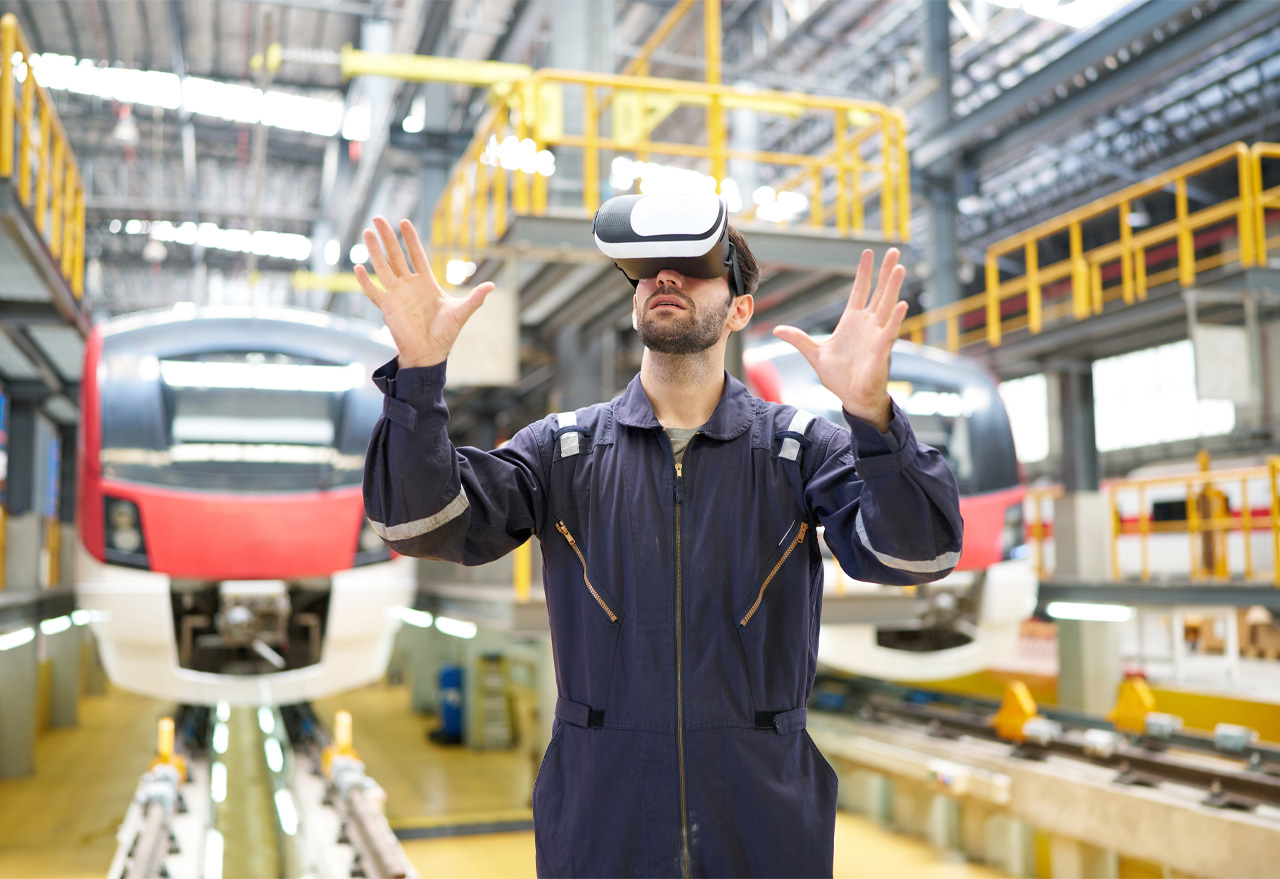The automotive industry is undergoing a huge shift with the rapid development of electric vehicles (EVs) to ensure a reduction in global carbon emissions.
In the quest for sustainable transportation, immersive technologies have emerged as a powerful tool to support the advancement of the automotive electrification sector. Leveraging Augmented Reality (AR) and Virtual Reality (VR), automotive companies are able to enhance training programmes, accelerate innovation and improve operational efficiencies.
Enhanced Training Programmes
Realistic Simulations
Learning tools created using immersive technologies enable automotive technicians to engage in realistic simulations that mimic real-world scenarios. These simulations provide hands-on training experiences without the need for physical EV vehicles, reducing costs and safety risks.
Maintenance Training
EV components, such as batteries, power electronics, and electric motors, are intricate. Interactive, immersive learning modules can teach automotive technicians how to effectively diagnose, maintain, and repair EV systems.
Remote Collaboration
One of the benefits of Augmented Reality is its ability to facilitate remote collaboration opportunities. Off-site technicians can provide ‘over-the-shoulder’ support, allowing teams to work together to solve complex tasks. This fosters a culture of knowledge-sharing and problem-solving, irrespective of geographical barriers.
Soft Skills Development
In addition to technical training, the success of the automotive electrification sector hinges on the current and future workforce developing critical soft skills, such as problem-solving, communication and collaboration. Immersive learning tools can simulate challenging situations, enabling learners to practise and improve their soft skills. A study by PwC found that learners completed soft skills training in VR 4 times faster than classroom-based training.
Accelerated Innovation
Design and Prototyping
Prototyping a new EV model can be time-consuming and costly. Digital design tools created using immersive technologies enable automotive engineers to visualise and manipulate virtual prototypes, increasing the speed of design iterations. This accelerates the innovation cycle and reduces the time it takes for new EV vehicles to reach the market.
Training for New Technologies
EV vehicles integrate several emerging technologies that are new to many people across the supply chain. Augmented Reality and Virtual Reality provide a way to deliver ‘hands-on’ learning opportunities that build competence at scale.
Concept Visualisation for Customers
Customer insights are critical in the design process of a new vehicle. Immersive technologies allow customers to experience and interact with virtual versions of future EV concepts. This approach can generate valuable insights, leading to more refined and appealing designs.
Improved Operational Efficiency and Sustainability
Streamline Workflows
Standard operating procedures are used extensively in EV manufacturing environments to ensure smooth and safe workflows. Digital checklists powered by Augmented Reality guide users step-by-step through operational processes, saving time and improving compliance. When Boeing implemented step-by-step AR guides, they found trainees completed the work in 35% less time.
Visualise Data
Data is a powerful source of information that can drive operational improvements and identify issues before they even arise. Immersive technologies can help people at all levels visualise and interpret live data instantaneously, ensuring a quick and effective decision-making process.
Supply Chain Management
Immersive technologies can be applied to educate supply chain professionals about sustainable sourcing, manufacturing, and distribution practices. This enables the automotive industry to build greener and more sustainable supply chains for EV production.
Advancing the Automotive Electrification Sector
Immersive technologies are reshaping the automotive electrification sector by providing transformative training programmes, accelerating innovation, and driving efficiency and sustainability. Through Augmented Reality and Virtual Reality, automotive professionals can hone their skills, collaborate effectively, and navigate the complexities of EV technologies. As these technologies continue to evolve, we can expect further advancements in the industry, paving the way for a greener, more sustainable future of transportation.






